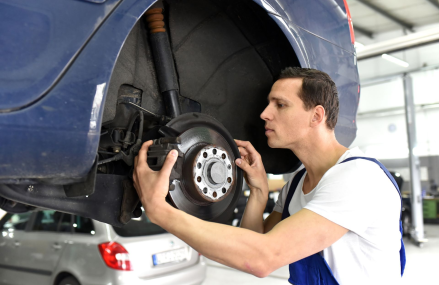You might be curious as to how to blacktop an asphalt driveway. It might not sound easy, but it is actually straightforward. Especially if you follow the steps in this article. Your driveway will continue to be in excellent condition, and it won’t break the bank to do so.

Resurfacing
Resurfacing an asphalt driveway is a great way to improve your home’s curb appeal and increase its resale value. It is only sometimes necessary to replace your driveway, however. The average cost of resurfacing an asphalt driveway is between $150 and $300. This price depends on the size of the driveway and the contractor’s work.
Resurfacing an asphalt driveway requires some specialized equipment. This includes a machine roller to spread the new asphalt. A heavy paintbrush is also needed to apply the resurfacer solution.
Asphalt resurfacing is best performed on blacktop driveways elkhart in less than 15 years old. This is because it is cheaper than repaving. However, resurfacing is not recommended if you have more than 30% of the surface damage.
Sealing
If you own an asphalt driveway, keeping it in good condition is essential. This includes having it resealed every three years or so. Sealing the asphalt protects it from elements like UV rays and moisture. It also makes the surface more durable. In addition, it increases the curb appeal of your property.
It can also save you money on repairs. Having an unsealed asphalt driveway can lead to tread marks and cracks. Thankfully, sealing your asphalt driveway is a simple and inexpensive DIY project. However, before you start, you should educate yourself on the process. You can find online how-to guides and instructional videos.
A good quality acrylic sealer can extend the life of your asphalt driveway by decades. Not only will this help you avoid the cost of resurfacing, but it will also reduce the risk of permanent damage.
Preventing Potholes
When you blacktop an asphalt driveway, you need to be aware of the potential for potholes. They are not only a safety hazard but also slow down the sale of your home. If left unchecked, potholes can turn into large holes and damage your tires and wheels.
Potholes are caused by water seeping into holes in the asphalt. Water contracts during warm weather and expands when it freezes. This causes cracks to form. Over time, the pavement becomes weaker, and it’s only a short time before the cracks widen and create larger holes.
To prevent potholes, you can use a sealer on your asphalt. It will protect the surface from rain and sleet and help you avoid UV rays that can wear down the asphalt.
Sinkholes
Sinkholes in asphalt driveways can be a natural hazard. They can be big enough to swallow up your home or car and are a massive danger to cyclists and pedestrians.
If you have a sinkhole, you must address it immediately. The longer you wait to repair it, the larger the hole can become. You may also need to fix other nearby voids.
Sinkholes are caused by erosion, cracks in the pavement, or a weakened base. A few simple steps can help you repair a small one. But if the problem is more serious, you’ll need to call in a professional.
Usually, a sinkhole occurs when a foundation isn’t correctly installed. The foundation can be concrete, asphalt, or stone. Ideally, the driveway should be compacted to be solid and secure.
Birdbaths
When blacktopping an asphalt driveway, you should be careful about your actions. Not only can it lead to severe damage, but it can also be dangerous to drivers and pedestrians alike. Fortunately, a few tricks can help you avoid the worst of the worst.
The first step is to clean out the area. You should remove any vegetation, leaves, or accumulated debris. Taking a broom or garden hose to the task is a good idea.
Next, it’s time to check the pavement. Look for cracks and seams. These areas should be sealed with an asphalt sealant. Using the proper sealant can extend the life of the asphalt.
If the area isn’t sealed, you can try re-heating the asphalt to fill in the cracks. Another option is to hire a paving company to install an overlay. A professional resurfacing job can cost anywhere from $3000 to $6000.



